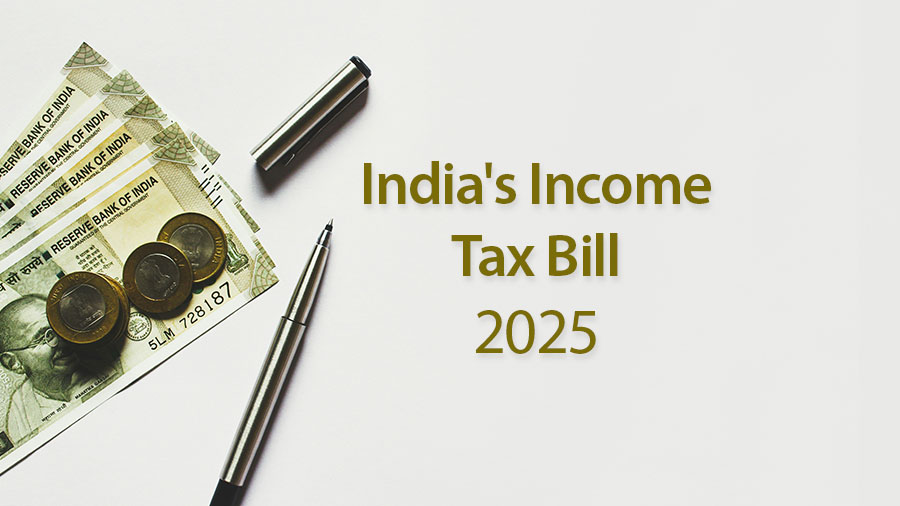The highly anticipated Income Tax Bill 2025 has been introduced in Parliament, bringing significant structural reforms while maintaining crucial provisions for Non-Resident Indians (NRIs). The bill retains existing NRI tax residency rules but introduces streamlined tax compliance measures and enhanced tax recovery provisions.
No Changes in NRI Tax Residency Rules – What It Means for You
Amid widespread speculation, the bill does not alter the tax residency definition for NRIs. If you earn Rs 15 lakh or more in India and do not pay taxes elsewhere, you will continue to be classified as Resident but Not Ordinarily Resident (RNOR). This ensures that only your Indian-sourced income is taxed, keeping your global income tax-free in India.
Who Qualifies as a Resident in India?
A person is considered a resident for tax purposes if:
- They stay in India for 182 days or more during a financial year.
- They stay in India for 60 days or more in a financial year AND 365 days or more in the preceding four years.
Exceptions for NRIs & Indian Citizens Abroad:
- NRIs visiting India: If your Indian income exceeds Rs 15 lakh, your 60-day stay threshold increases to 120 days.
- Indian citizens leaving for employment or ship crew members: Different residency criteria apply.
Key Provisions Impacting NRIs in the Income Tax Bill 2025
The bill simplifies the tax structure, consolidating 47 chapters into 23 and reducing 819 sections to 536 clauses, making tax compliance easier for NRIs. Here are the critical clauses that affect you:
- Clause 5: Defines the scope of income for residents and non-residents.
- Clause 60 & 61: Establishes deductions for head office expenses and presumptive taxation for NRIs.
- Clause 174: Prevents income transfers to non-residents to avoid tax.
- Clause 207 & 209: Sets tax rates on dividends, interest, distributed income, royalties, and fees for technical services.
- Clause 211: Defines tax rates for non-resident sportspersons.
- Clause 213-215: Specifies taxable income, investment income exemptions, and capital gains tax.
- Clause 216: Exempts NRIs from filing tax returns if TDS is deducted on eligible income.
- Clause 217: Grandfathering rules for investment income taxation upon NRI return to India.
- Clause 306: Assigns tax agents for NRI tax compliance.
- Clause 422: Strengthens tax authorities' ability to recover outstanding tax dues from NRIs’ Indian assets.
- Clause 505: Mandates liaison offices in India to submit annual tax statements.
NRI Taxation Rates Under the New Bill
The bill retains specific tax rates for NRIs on income earned in India:
- Dividends: 20%
- Dividends from IFSC units: 10%
- Interest on government or Indian company debt (foreign currency loans): 20%
- Interest from infrastructure debt funds: 5%
- Mutual fund income (purchased in foreign currency): 20%
TDS, Capital Gains, and Tax Recovery: What NRIs Must Know
- TDS on NRI Income: Any taxable income received by NRIs in India, including NRI property sale TDS, will have TDS deducted at applicable rates.
- No Tax Return Filing?: If your only income is investment income or long-term capital gains, and TDS is already deducted, you may not need to file a return.
- Capital Gains Tax Exemptions: NRIs reinvesting long-term capital gains into specific assets within six months can avail of capital gains tax exemption. A partial exemption applies if reinvestment is lower than the proceeds.
- Stricter POEM Rules: The bill tightens Place of Effective Management (POEM) rules, ensuring that foreign companies with significant operations in India are taxed accordingly.
Final Takeaway: What This Means for NRIs
The Income Tax Bill 2025 simplifies India’s tax system while reinforcing anti-tax evasion measures. Key takeaways for NRIs:
- RNOR Status Remains: If you earn over Rs 15 lakh in India, your global income remains untaxed in India.
- Investment Income & Capital Gains Taxation: Favorable provisions for reinvestments.
- Enhanced Tax Recovery Measures: Authorities have increased powers to recover NRI tax dues from Indian assets.
Need Expert NRI Tax Advice? Contact Us!
Navigating NRI taxation can be complex. Dinesh Aarjav & Associates specializes in NRI tax planning, compliance, and investment advisory. Contact us today to ensure tax efficiency and legal compliance while maximizing your financial gains
 WhatsApp
WhatsApp
 Call Us
Call Us
 Email Us
Email Us
 Whatsapp Community
Whatsapp Community







